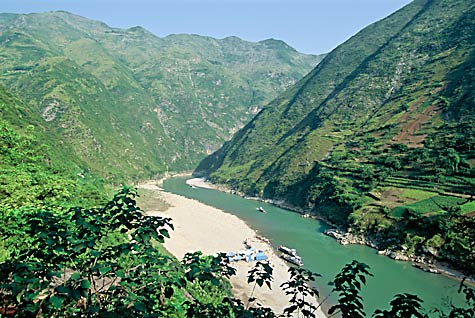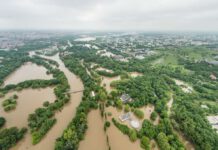Beijing, China – Since 1970, China's terrestrial vertebrates have declined by half, while the nation's Ecological Footprint has more than doubled, reveals WWF's Living Planet Report China, 2015, a flagship research report on the country's demand on nature.

The fourth issue of the report, themed “development, species and ecological civilization”, tracked 2,419 representative populations of 682 vertebrates' species in China and found that almost half of China's terrestrial vertebrates have vanished in the last 40 years.
Habitat loss and nature degradation by human activities and development are the most significant threats to in China. Over-hunting and climate change are also significant threats to amphibians, reptiles and mammals.
“WWF believes that better solutions do exist, and that together we can reverse the trend if we make better choices that ensure China's development, without destroying nature,” said Marco Lambertini, Director General of WWF International. “As the world's largest emerging economy, China plays a vital role in global sustainability and environmental conservation. We are all connected, and collectively, we have the potential to find and adopt the solutions that will safeguard the future of our one and only planet.”
Encouragingly, China's resident bird populations stabilized between 1970 and 2000, following a dramatic decline in earlier years. Furthermore, thanks to the growing number of protected areas and protective laws, resident bird populations have recovered strongly since 2000, growing by 43 per cent.
“With the ecological civilization become national strategy, China's economy has entered an era where a balance between ecological protection and economy development is a new normal. How China deals with its growing environmental challenges in its way towards industrialization and urbanization is now a most essential question in promoting China's ecological civilization.” said Mr Xu Qinghua, Vice Secretary General of CCICED. “We hope the release of the report can inspire China's efforts on ecological civilization to realize the Chinese dream.”
Rapid development and urbanization is driving China's Ecological Footprint
Living Planet Report China 2015 also shows the Ecological Footprint, which is a measure of humanity's demands on nature. The report states that China accounts for one-sixth of the global ecological footprint, ranking the nation ahead of all other countries in the world. Though China's per capita footprint is lower than the global average, the nation is already consuming more than double its biocapacity, causing significant impact on the environment, including, forest degradation, drought, soil erosion, water shortages, increasing carbon dioxide and biodiversity loss. The carbon footprint remains the largest and fastest growing component, accounting for 51 per cent of China's Ecological Footprint in 2010.
“With its vision of an ecological civilization, in which humans live in harmony with nature, China has the opportunity to lead the world in global sustainability and ensure a resilient future for our entire planet,” said Mathis Wackernagel, co-creator of the Ecological Footprint framework and president and co-founder of Global Footprint Network. “The Ecological Footprint can play an important role in guiding leaders in China to make strategic investments and set policies to turn their vision into a reality.”
Footprint and biodiversity differ significantly by province. Nine provinces together contribute to half of China's biocapacity, while five provinces alone account for 35 per cent of the nation's total footprint. Since the last issue, four additional provinces (Inner Mongolia, Yunnan, Hainan, Xinjiang) now show ecological deficits. Only two provinces (Qinghai and Tibet) have ecological reserves. A nation has an ecological deficit when its Ecological Footprint exceeds its biocapacity, and holds a reserve when its biocapacity exceeds its Ecological Footprint. read more …
[INT.] 12. November 2015 – WWF – World Wide Fund For Naturewwf.panda.org











